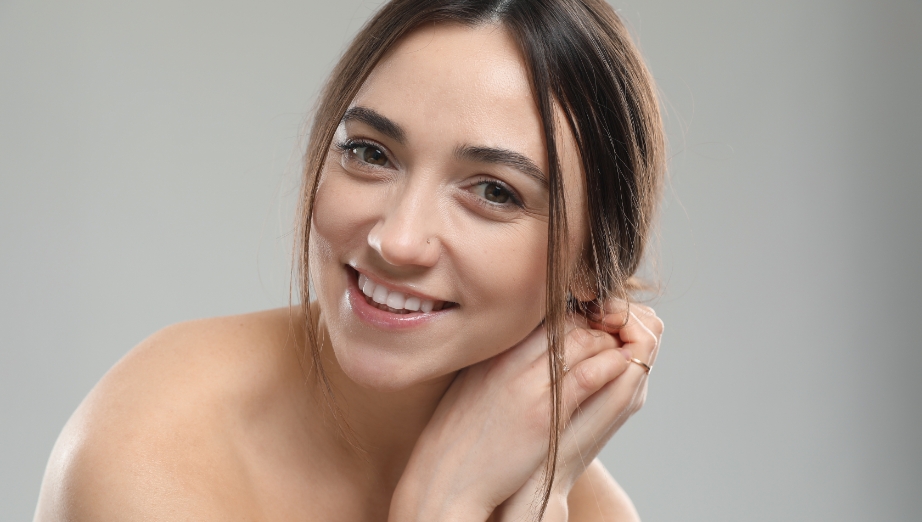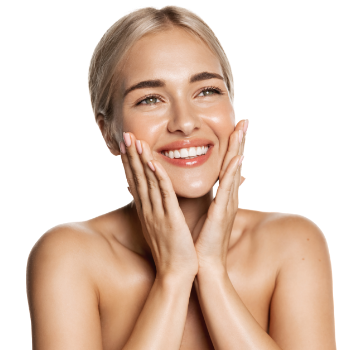The skin serves as the body’s first line of defence, maintaining structure, balance, and protection.
Over time, natural ageing and external influences can affect how efficiently the skin renews itself and maintains its integrity.
A consultation for skin resilience allows you to explore the biological and environmental factors that may influence your skin’s function and discuss options for professional care under medical supervision.
Factors That Can Influence Skin Resilience
Several processes contribute to visible and functional changes in the skin:
- Cellular turnover: The rate at which surface cells renew naturally slows with age, influencing texture and tone.
- Structural components: Collagen, elastin, and other extracellular elements provide strength and elasticity; their production can decline gradually.
- Barrier function: The outermost layer protects against dehydration and environmental exposure but can weaken due to repeated stress.
- Micro-circulation: Adequate blood flow supports oxygen and nutrient delivery; reduced circulation may impact recovery and comfort.
- External factors: Sun exposure, stress, and environmental pollutants can accelerate change and affect the skin’s overall condition.
Understanding these factors helps guide a conversation about approaches that may support the skin’s natural capacity for balance and protection.

Your Consultation at Shellharbour Skin
Your consultation is a comprehensive, discussion-based appointment centred on your goals and suitability.
During this appointment, your clinician may:
- Assess your skin condition, texture, and hydration.
- Review your medical history, medications, allergies, and lifestyle factors.
- Discuss your priorities and expectations.
- Explore non-surgical approaches appropriate for supporting overall skin quality.
- Determine your clinical suitability for any proposed procedure.
- Provide information about preparation, after-care, and recovery expectations.
- Support you in making an informed decision about next steps.
- Offer the opportunity to ask questions or raise concerns.
This consultation ensures that any recommendations are personalised and based on your health, safety, and individual preferences.
Approach Discussions
Following your assessment, your clinician may outline management or treatment approaches suited to your needs.
These discussions focus on identifying safe, non-surgical options to support overall skin balance and integrity.
Topics may include:
- Observation or monitoring, when no immediate intervention is required.
- Professional in-clinic treatments such as Alma Hybrid, BBL, Laser Genesis, Ultraformer MPT where clinically appropriate.
- Advanced skin-support procedures discussed only after clinical assessment and performed under medical supervision.
Important: No treatment proceeds without a full medical assessment and informed consent.
Your clinician will clearly explain the clinical reasoning for any recommendation, what to expect before/during/after, the potential risks, and aftercare requirements.
After-Care & Follow-Up
Following any clinical treatment, your clinician will provide an individualised after-care plan, which may include:
- Avoiding strenuous activity or heat exposure for a short period.
- Pausing active skincare products until advised.
Keeping the area clean and avoiding makeup initially. - Attending a follow-up review as recommended.
Recovery times vary between individuals. Your clinician will discuss what to expect based on your personal plan and clinical assessment.
Risks and Considerations
All aesthetic and clinical procedures carry potential risks and side effects. During your consultation, your clinician will discuss these thoroughly and explain the steps taken to minimise them.
Temporary effects may include:
- Redness
- Swelling
- Bruising
Less common risks can include:
- Infection
- Bleeding or haematoma formation
- Skin discolouration
- Itching or irritation
- Skin ulceration
- Vascular compromise
- Localised tenderness or sensitivity
If you experience pain, discolouration, or persistent symptoms after treatment, contact the clinic promptly for assessment.
Important Information
- Shellharbour Skin discusses specific treatment options only within consultation.
- We do not advertise or promote prescription-only products.
- All services are provided following a complete clinical assessment and informed-consent process.
- Recovery experiences vary between individuals.
- Shellharbour Skin services are intended for adults aged 18 years and over.
- This content is for educational purposes only and does not replace professional medical advice.
Practitioner Transparency
Consultations and skin treatments at Shellharbour Skin are provided by a multidisciplinary clinical team:
- Dermal Clinicians – qualified skin professionals who are not registered under AHPRA but hold tertiary qualifications in dermal science or dermal therapies. They provide skin treatments and consultations within their professional scope and under clinical supervision.
- Registered Nurses – AHPRA-registered health practitioners who perform skin and aesthetic treatments within their clinical training and scope of practice.
- Medical Practitioners – AHPRA-registered doctors experienced in skin health and aesthetic medicine who oversee and support all clinical services.
All treatments are undertaken within a medically supervised environment, ensuring that each patient pathway is reviewed for clinical suitability, safety, and adherence to evidence-based standards.
You can verify registration for medical practitioners and nurses at ahpra.gov.au.
Frequently Asked Questions
What does skin resilience mean?
Skin resilience refers to the skin’s ability to protect, repair, and maintain balance when exposed to daily stressors. It’s what allows the skin to recover after irritation, resist environmental damage, and stay firm and hydrated. Over time, natural ageing and external factors like sunlight, pollution, and stress can reduce this capacity – leading to dullness, dryness, or increased sensitivity.
Why does my skin feel less firm or more reactive as I age?
As we age, cell turnover slows, collagen and elastin production decline, and the skin barrier becomes less efficient at retaining moisture. This combination can make the skin appear thinner, less elastic, or more prone to redness and dehydration. Your consultation explores how these processes occur and how you can support the skin’s natural renewal cycle.
Can lifestyle affect skin resilience?
Yes, lifestyle habits play a major role. Factors such as sun exposure, stress, sleep, nutrition, and hydration all influence how well your skin protects and repairs itself.
Smoking, alcohol use, and environmental pollutants can also accelerate changes by increasing oxidative stress and inflammation. Understanding and adjusting these habits can significantly improve skin comfort and long-term function.
Are there risks with professional skin treatments?
All clinical and aesthetic treatments carry potential risks. Temporary effects can include redness, mild swelling, or sensitivity.
Less common risks may involve bruising, pigmentation changes, or irritation. Your clinician will clearly explain all potential side effects and aftercare instructions before any procedure.
Are prescription treatments discussed during the consultation?
Prescription-only products or procedures are only discussed after a clinical evaluation and under the direction of an authorised prescriber. These may include specific topical or injectable treatments designed to act beneath the surface, but they cannot be advertised or named publicly under AHPRA and TGA regulations.
How can I improve my skin barrier and resilience at home?
Your clinician may recommend a personalised skincare plan focused on:
- Maintaining hydration with gentle, barrier-supportive moisturisers
- Protecting from UV exposure daily
- Using antioxidant-rich products to help neutralise environmental damage
- Avoiding over-exfoliation or harsh actives that may impair recovery
- Supporting overall health with nutrition, adequate sleep, and stress management
These simple measures can strengthen the skin’s natural defence and repair capacity over time.
If you have a question, get in touch and one of our staff will be in touch shortly.




